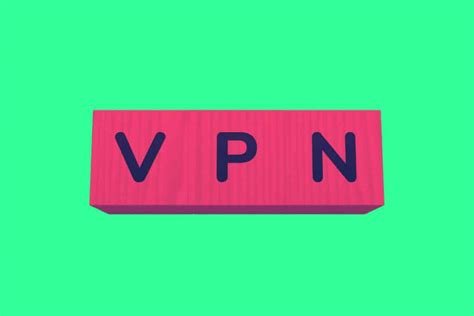Understanding VPNs for Streaming: A Complete Guide

In an age where streaming has transformed the way we consume entertainment, Virtual Private Networks (VPNs) have emerged as essential tools for users seeking to enhance their viewing experience. Whether you want to access geo-restricted content, enjoy secure browsing, or maintain your online privacy, understanding how VPNs work and their benefits is crucial. This complete guide will take you through everything you need to know about VPNs for streaming, including how to choose the right service, set it up seamlessly, and troubleshoot common issues. We will also share our expert recommendations for the top VPNs that can elevate your streaming experience to new heights. Get ready to unlock a world of content and enjoy your favorite shows and movies effortlessly!
What Are VPNs for Streaming and How They Work
VPNs for streaming are tools that allow users to access and enjoy their favorite media content while ensuring their online privacy and security. They work by routing your internet connection through a remote server owned by the VPN provider, effectively masking your real IP address. When you connect to a VPN server, it appears as though you are accessing the internet from the location of that server rather than your actual geographic location. This is particularly beneficial for streaming services that restrict content based on regional availability.
Here’s how VPNs for streaming function:
By masking your identity and changing your location, VPNs for streaming not only help you enjoy a wider array of content but also provide a layer of security that traditional streaming might not offer. As the world of online streaming continues to evolve, understanding how to utilize VPNs effectively can significantly enhance your streaming experience.
Benefits of Using VPNs for Streaming Content Online
Utilizing VPNs for streaming offers a variety of benefits that enhance your online viewing experience. Here are some key advantages:
- Access to Restricted Content: Many streaming platforms impose geographical restrictions on certain content. With a VPN, you can bypass these limitations by connecting to a server in a different country, allowing you to access libraries and shows that may not be available in your location.
- Enhanced Privacy and Security: A VPN encrypts your internet connection, protecting your personal data from prying eyes. This is particularly important when using public Wi-Fi networks, where your data is more vulnerable to cyber threats.
- Better Streaming Speeds: Some internet service providers intentionally throttle bandwidth for streaming services. A VPN can help mitigate this issue by masking your streaming activities, potentially resulting in smoother and faster streaming.
- Multiple Device Compatibility: Most reputable VPNs are compatible with various devices, including smart TVs, smartphones, tablets, and streaming media players. This means you can enjoy your favorite shows across different platforms without restrictions.
- Ad and Malware Blockers: Many VPNs come with additional features like ad-blocking and malware protection. These tools can enhance your streaming experience by eliminating intrusive ads and reducing the risk of malicious software.
Overall, the use of VPNs for streaming not only broadens your access to content but also enhances your security and privacy, making it a worthy consideration for any avid streamer.
How to Choose the Right VPN for Streaming Services
When selecting a VPN for streaming, it’s essential to consider several key factors to ensure that you get the best service possible. VPNs for streaming can significantly enhance your experience if chosen wisely. Here are the most important aspects to look for:
1. Streaming Compatibility: Not all VPNs work seamlessly with streaming platforms. Check if the VPN provider explicitly mentions compatibility with services like Netflix, Hulu, Amazon Prime Video, or others you wish to access.
2. Speed and Performance: Streaming requires a stable and fast connection. Look for VPNs that offer high speeds and minimal latency to prevent buffering and ensure an uninterrupted viewing experience.
3. Server Locations: A wide range of server locations can give you access to content from different regions. Choose a VPN that has servers in the countries whose streaming services you want to access.
4. Data Limits: Some VPNs impose data limits or throttling. Opt for a provider known for unlimited bandwidth to stream your content without restrictions.
5. Security and Privacy Features: Ensure that the VPN has robust encryption protocols and a strict no-logs policy. This is crucial for protecting your data while streaming.
6. User-Friendly Interface: A VPN with an intuitive interface will be easier to use, allowing you to quickly connect to a server and start streaming without any hassle.
7. Customer Support: Choose a VPN provider that offers responsive customer support. Having access to assistance can be invaluable if you encounter any issues while streaming.
8. Cost and Value: Finally, consider the pricing plans available. While some VPNs might be more affordable, ensure they do not compromise on performance and features. Look for a balance between cost and quality.
Keeping these factors in mind will help you select the best VPNs for streaming that meet your needs and enhance your online viewing experience.
Setting Up Your VPN for Streaming in Simple Steps
Setting up VPNs for streaming can seem daunting, but it’s a straightforward process when broken down into manageable steps. Follow this guide to enjoy seamless streaming with your VPN solution.
- Choose a Reliable VPN Service: Select a VPN provider that specifically supports streaming. Look for features such as multiple server locations, high-speed connections, and no bandwidth throttling.
- Sign Up and Download the VPN App: After subscribing to your chosen service, download the VPN application onto your preferred device—be it a laptop, smartphone, or smart TV.
- Install the VPN: Open the downloaded application and follow the installation prompts. Make sure to grant any necessary permissions for optimal functionality.
- Log In to Your Account: Once installed, launch the app and log in using the credentials you created during your subscription.
- Select a Server Location: Choose a server from your VPN’s list of available locations. For the best streaming experience, select a server in the country where the content you wish to access is available.
- Connect to the VPN: Click the connect button to establish a secure connection to the selected server. Wait for the connection to be confirmed.
- Launch Your Streaming Service: With your connection established, open your preferred streaming service. You should now have access to content that may have been previously restricted based on geographic location.
- Troubleshoot if Necessary: If you encounter issues accessing content, try switching to a different server, clearing the cache of your streaming app, or contacting your VPN’s customer support for assistance.
By following these simple steps, you can set up your VPN for streaming and enhance your online viewing experience with added privacy and access to a wider range of content.
Common Issues with VPNs for Streaming and How to Fix Them
While VPNs for streaming can greatly enhance your viewing experience by bypassing geo-restrictions and protecting your privacy, users often encounter several common issues. Here’s a look at these problems and practical solutions to help you enjoy uninterrupted streaming.
1. Slow Streaming Speeds
A common complaint among users is buffering and slow speeds. This issue can arise from various factors, including server congestion or the distance to the server you are connected to. To fix this:
- Choose a server that is closer to your geographic location.
- Switch to a less crowded server provided by your VPN.
- Ensure you are using the latest version of the VPN software.
2. Inability to Access Specific Streaming Services
Some streaming platforms actively block access from known VPN IP addresses. If you find that your service is not working:
- Try connecting to a different server within your VPN.
- Check if your VPN provider has specific servers optimized for that service.
- Contact your VPN’s customer support for assistance if the issue persists.
3. VPN Disconnecting Frequently
Frequent disconnections can be frustrating, especially when binge-watching content. This may be due to:
- Network instability. Ensure your internet connection is reliable.
- VPN settings. Check your VPN’s protocol settings, as switching to a more stable protocol like OpenVPN might help.
4. Incompatibility with Certain Devices
Some devices may not be compatible with your chosen VPN, leading to issues during setup. To resolve this:
- Check your VPN provider’s compatibility information on their website.
- Consider using a router-level VPN if your device cannot directly support the VPN app.
5. Unreliable Customer Support
Sometimes, users may encounter issues that require immediate attention, and having inadequate support can be detrimental. To ensure you have good service:
- Choose a VPN provider known for responsive customer support, preferably with live chat options.
- Look for providers offering extensive FAQs and knowledge bases for self-help.
By being aware of these common issues with VPNs for streaming and knowing how to troubleshoot them, you can improve your streaming experience and enjoy your favorite content without interruptions.
Top VPNs for Streaming: Our Expert Recommendations
When it comes to picking the best VPNs for streaming, it’s crucial to choose providers that deliver speed, security, and accessibility to various streaming platforms. Based on extensive testing and user feedback, here are our top recommendations:
- ExpressVPN – Renowned for its high-speed connections and excellent unblocking capabilities, ExpressVPN allows users to stream content from services like Netflix, Hulu, and Amazon Prime without interruptions. Its user-friendly interface makes it a favorite for both beginners and tech-savvy users.
- NordVPN – This provider is distinguished by its vast server network, which spans across multiple countries, enabling access to geo-restricted content. NordVPN offers strong encryption and a no-logs policy, ensuring your browsing history is kept private.
- Surfshark – Known for its unlimited connections, Surfshark is perfect for households with multiple devices. It supports various streaming services, and its “Camouflage Mode” helps maintain your online privacy.
- CyberGhost – With dedicated servers for streaming, CyberGhost is optimized for accessing your favorite platforms effortlessly. It also comes with a generous money-back guarantee, allowing users to test its features risk-free.
- PIA (Private Internet Access) – PIA is a well-established player in the VPN market, providing a strong balance of features and performance. Its customizable settings allow experienced users to tweak options for the best streaming experience.
When choosing a VPN for streaming, consider factors such as server locations, concurrent connections, and compatibility with your devices. Each of these recommendations excels in providing a reliable streaming experience while maintaining your online privacy.
Frequently Asked Questions
What is a VPN and how does it work for streaming?
A VPN, or Virtual Private Network, is a service that creates a secure connection over the internet. It encrypts your data and masks your IP address, allowing you to access geo-restricted content on streaming platforms.
Are all VPNs suitable for streaming?
Not all VPNs are optimized for streaming. It’s essential to choose a VPN that specifically states it can bypass geo-restrictions and provides fast server connections to ensure a smooth streaming experience.
Can using a VPN improve streaming speeds?
In some cases, using a VPN can improve streaming speeds by preventing bandwidth throttling from your internet service provider (ISP). However, the speed may also decrease if the VPN server is congested or far from your location.
What are the risks of using a free VPN for streaming?
Free VPNs often come with limitations such as slower speeds, data caps, and might sell your data to third parties. They may not reliably bypass restrictions, making them less suitable for streaming purposes.
How can I choose the right VPN for streaming?
When selecting a VPN for streaming, check for features like a large number of servers in various regions, strong encryption, no logs policy, good speed performance, and compatibility with your preferred streaming services.
Will using a VPN allow me to watch content not available in my country?
Yes, a VPN allows you to connect to servers in different countries, giving you access to content that may be restricted in your location. However, some streaming services have advanced measures to detect and block VPN usage.
Do I need to configure my VPN for streaming?
Most reputable VPN services offer user-friendly applications that come pre-configured for streaming. However, you may need to select specific servers optimized for streaming to ensure the best performance.

 Windows Server
Windows Server



 VPN
VPN
 Canva Pro
Canva Pro Envato Elements
Envato Elements Freepik
Freepik Shutterstock
Shutterstock Motion Array
Motion Array Pngtree
Pngtree LovePik
LovePik Pikbest
Pikbest
 WordPress Plugin
WordPress Plugin
 macOS Apps
macOS Apps

